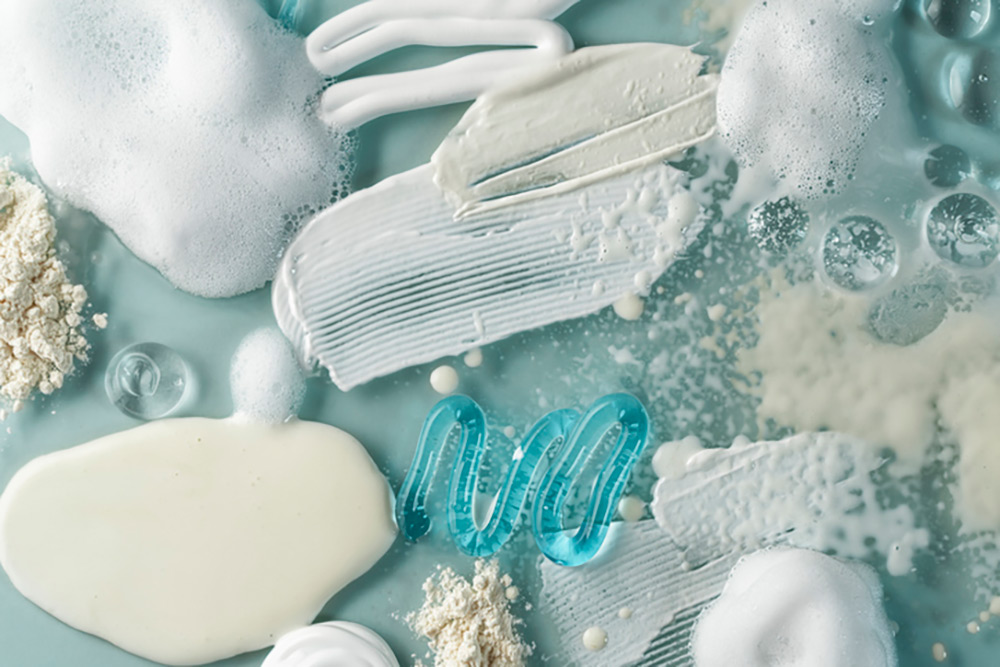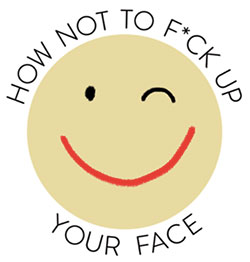By Valerie Monroe
If you’re interested in feeling happier about your appearance—especially as you age—you might like reading what she has to say about it. For more of her philosophical and practical advice, subscribe for free to How Not to F*ck Up Your Face at valeriemonroe.substack.com.
A FRIEND asking how to figure out which of the many products she uses might be The One irritating her skin, which coincides with a question that still plagues me: Why do extremely smart women continue to fall for beauty marketing?
Relatedly, are we actually placing our faith in snail slime?
My irritated friend, like many intelligent women I know, seems to have been seduced by several K-beauty trends and bought a collection of products, which I think precipitated her unhappy email to me.
Last week another friend touted a Korean snail mucin product that supposedly helps reduce redness, fine lines, age spots, etc. I suggested that whatever effects my friend expected to see—just short of a miracle—were less likely the result of snail mucin and more thanks to moisturization and consistent use. Why? Though there have been a few studies about the positive effects of snail mucin, the one small study that seemed to show pluses was partially funded by a lab that produces skincare ingredients. In other words, it wasn’t independent, so the investigators might have had an interest in the outcome. (I have to say here that the title of this post does not obliquely refer to this friend or any others!)
This kind of pseudoscience has long been a characteristic of beauty culture. (Jessica DeFino has written eloquently—and unforgivingly—about it.) And as a physician familiar with scientific studies once told me, “You can get a study to show almost anything.” I get frustrated with friends who ask me again and again, “But does this [expensive cream/lotion/wrinkle diminisher] work?” Which is ironic, because being a 73-year-old woman in a culture that prizes youthfulness and hypersexuality myself, I’m susceptible to marketing, too.
This reminds me of an anecdote I shared a couple of years ago. On the luminous Jack Kornfield podcast, Heart Wisdom, Kornfield tells the story of when he decided, reluctantly, to reveal to his young daughter that there was no tooth fairy. She had just lost a tooth and a friend encouraged him to tell the truth about where the lucre under her pillow came from. So Kornfield told her, “Honey, there is no tooth fairy. I’m the tooth fairy.” There was confusion, he says, then lots of tears. They snuggled. Finally, his daughter looked up at him. “But Daddy,” she asked, “what do you wear?”
This, my friends, is us. No matter how many times we hear the truth, we find a way to keep hope alive. I think it’d be lovely—don’t you?—if we weren’t so consistently disappointed.
I’ve come to think of marketing as a wily puppeteer behind almost all cultural trends. Kale: Why was it suddenly on everyone’s plate? Iceland: Why is it the country you never thought of visiting till recently? When you consider that marketing is behind most decisions you make—from what you eat to where you spend a vacation—it gives you a different perspective about making those choices. I don’t know about you, but I’ve discovered that marketing often makes me feel competitive, feeds my general discontent and abstract yearning, confuses me, and reduces my ability to be present with the gifts surrounding me. In other words: Yech. And beauty marketing? It takes the cake.
Anyway, I told my friend suffering from irritated skin (with approval from dermatologist Hadley King) that she might try cutting out all products but one. If it didn’t irritate, add one more product, and so forth. But I emphasized that the fewer products she used, the healthier her skin would most likely be.
As for my snail mucin friend, I suggested she look at this study; you can quickly learn more about snail mucin in this video, and take a deeper dive into Korean beauty culture here.
Marketing, it’s even news! Maybe you saw the story in The New York Times about $1,800 facials; I recently received a PR email about a New York City medi-spa selling a less-spendy facial for only $1,000. As my Monty Python pals have wisely said, “Run away! Run away!”
I know I’m a broken record (is there a more contemporary term for that?), but there are only a few products you need for healthy skin unless you have a condition requiring medical intervention. (Loyal Readers, sorry to introduce these links again, but new readers continue to stream in like ants at the company picnic—so it feels necessary.) The most important product you can put on your skin? Sunscreen, because around 90% of skin aging is due to sun exposure. As for treatments, vitamin A derivative retinoids have been proven to diminish fine lines and wrinkles and help generate collagen and elastin, when used consistently over time.
Of course (broken record), there’s always this exercise, which . . . Just Do It.



